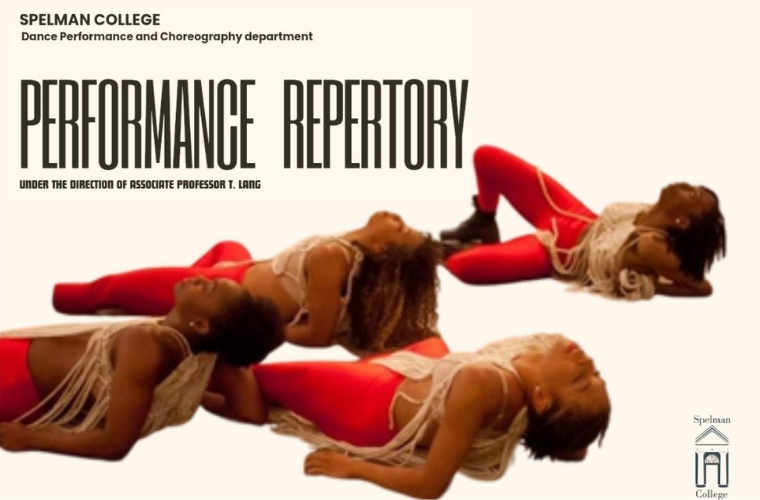
T. Lang
Associate Professor, Spelman College Dance Department
Biography
T. Lang’s Performance Repertory course focuses on the advanced development and practice of contemporary and experimental repertory for museum and gallery installations. It is designed to provide students with an introduction to the professional experience collaborating with a company to produce an immersive performance. In collaboration with the High Museum of Art, Alliance Theater, and Atlanta Symphony Orchestra as our spring 2025 presenting venues, this course offers essential resources that will support students throughout every stage of the processes of producing a major work. Each aspect of the creative process will be informed by transdisciplinary techniques that will be applied to dance rehearsal preparation for company work. When asking T. Lang, artistic director of T. Lang Dance who is currently an associate professor and was the inaugural chair for the Dance Performance and Choreography department at Spelman College, her intention for creating this unique course, she describes:.
“When creating this course for our students, it was my goal to expand their ideas on how contemporary and commercial dance can be presented and respond to alternative sites. It is my objective, to teach them our dance majors how to invent, synthesize, and transform ideas, concepts, styles, and movement and to Identify, research and analyze a wide range of canonical, contemporary, and cutting-edge work in professional Choreography. This course offers rare opportunities to gain deep professional experience in creating work for Atlanta partners who represent various disciplines of study and placed in unconventional spaces.”
Mission Statement for Spelman College Dance Performance and Choreography department:
Dance at Spelman is a critical and creative thinking laboratory that nurtures women of the African Diaspora. Students investigate intersections of experimental creative practices, cultural discourse, and technology. In keeping with the College's focus on social justice and innovation, the department's theory and composition classes fuse technology and womanist theory along with other social discourse. The curriculum centers on the choreographic process through the lens of Black feminist theories, contemporary dance techniques, and interdisciplinary collaborative practice.